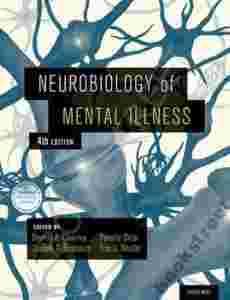|
Our understanding of the neurobiological basis of psychiatric disease has accelerated in the past five years. The fourth edition of Neurobiology of Mental Illness has been completely revamped given these advances and discoveries on the neurobiologic foundations of psychiatry. Like its predecessors the book begins with an overview of the basic science. The emerging technologies in Section 2 have been extensively redone to match the progress in the field including new chapters on the applications of stem cells, optogenetics, and image guided stimulation to our understanding and treatment of psychiatric disorders. Sections 3 through 8 pertain to the major psychiatric syndromes-the psychoses, mood disorders, anxiety disorders, substance use disorders, dementias, and disorders of childhood-onset. Each of these sections includes our knowledge of their etiology, pathophysiology, and treatment. The final section discusses special topic areas including the neurobiology of sleep, resilience, social attachment, aggression, personality disorders and eating disorders. In all, there are 32 new chapters in this volume including unique insights on DSM-5, the Research Domain Criteria (RDoC) from NIMH, and a perspective on the continuing challenges of diagnosis given what we know of the brain and the mechanisms pertaining to mental illness. This book provides information from numerous levels of analysis including molecular biology and genetics, cellular physiology, neuroanatomy, neuropharmacology, epidemiology, and behavior. In doing so it translates information from the basic laboratory to the clinical laboratory and finally to clinical treatment. No other book distills the basic science and underpinnings of mental disorders and explains the clinical significance to the scope and breadth of this classic text. The result is an excellent and cutting-edge resource for psychiatric residents, psychiatric researchers and doctoral students in neurochemistry and the neurosciences.
|

